My fieldwork has taken me to countries across the Middle East, North Africa, and Central Asia but few are as incredible as Lebanon. From the Bekka Valley in the East, Tripoli in the North, Sidon in the South, and Beirut at its centre, Lebanon is one of the most vibrant, talented, and beautiful countries Ive seen. With more than 5000 years of history, Lebanon and its antecedents have given the world major contributions to philosophy, trade, and technology. Lebanon today is struggling with many serious challenges, discussed below, but I remain deeply moved by the history and future of this small country.
Early this year, I started my fieldwork in Lebanon’s cosmopolitan capital city Beirut — a beautiful mixture of Arabic & French culture, language, and food. After a bit of time in Beirut and the Bekka Valley near the Syrian border, I traveled up the coast to the northern and much more impoverished city of Tripoli for my fieldwork. I didn’t know it at the time, but this trip turned out to be a turning point for me that reaffirmed why research remains the best way address major social challenges. It reminded me of why I was there and what I hoped to do at a time when I needed it most. But before going further into these personal reflections, I want to consider the places in Lebanon that mean so much to me and scratch the surface of their histories.
During much of the 20th century, Beirut was the most sought-after city in the Middle East for journalists, spies, diplomats, investors, and tourists alike. In many ways, Beirut played the role that Dubai does today - only without the tacky buildings, influencers, and shady human rights record that characterises the emirate. Beirut’s leafy streets and courtyards were once the go-to place for multi-national companies and news bureaus looking to establish a presence in the Levant and the broader Middle East. Lebanon’s talent, excellent universities, legal system, and beautiful mediterranean setting made it the ideal home base for many external companies expanding into the region. However, after a brutal fifteen-year civil war and foreign interference from 1990 to 1975, Beirut’s stability and global prominence slowly faded.
Despite this and everything that has happened since, the city today still retains its vibrancy and many of its old charms remain if you know where to look. Historic neighbourhoods like Achrafieh, Mar Mikhail, Bachoura, and Hamra are doggedly holding on after the devastating 2020 Beirut Blast and currency crisis destroyed so many lives. As one Marionite woman told me, the Lebanese people have been in Beirut for 7000 years since the Pheonicians first turned it into a major trading centre and nothing seen today will stop them. That shouldnt let anyone think that life for most people in Lebanon has been anything but hellish for many years, but it does demonstrate that tenacity and ingenuity of Lebanese to persist and create despite the impossible challenges.
However Beirut today faces major challenges as it heals from social & economic impacts of the 2020 Beirut blast, the currency crisis, and the Lebanese civil war which are still deeply felt. The inflation crisis which has only accelerated recently has led many Lebanese to leave the country — while I was in Lebanon the value of the Lebanese pound collapsed further and halved once again under the blackmarket rate which everyone uses as the banks remain largely inoperable. Indeed, there are more Lebanese located outside of Lebanon than inside and the diaspora has continued to grow as conditions at home worsen. Adding to this, the persistent corruption of the Lebanese elite, exemplified by Riad Salameh, the Central Bank governor who was recently forced to resign before being sanctioned by the US, UK, Canada, and Interpol for his role in plundering the country’s wealth. Despite all of this, Beirut remains one of the most beautiful, welcoming, and vibrant cities in the region. For all the talk of sectarianism that one reads from western journalists, Beirut challenges these stereotypes. Sunnah, Shia, and Christians live side-by-side and interact daily. This is not to deny that sectarian challenges exist (to do so would be as bad as the media and far-right who fixate on them), even in the capital and the Lebanese constitution. But while a few neighbourhoods like Haret Hreik are dominated by groups like Hezbollah, the daily interactions between different communities help to overcome these differences and the sense Lebanese national identity holds on. Beirut has seen more trajedies than many cities in the past few decades, but it remains an unmatched place for people to meet, share, and connect. The city hosts the flagship American University of Beirut (AUB) and several top-notch medical schools which regularly attract students from around the Middle East and Europe. Its people and businesses adaptive and resilent to the countless injustices that have been thrown at them ever since the colonial (and post-colonial) era. For all the major hurdles ahead and behind of Beirut, we should also talk about all of the positive things that make the city so unique and a blessing to both the region and the world.
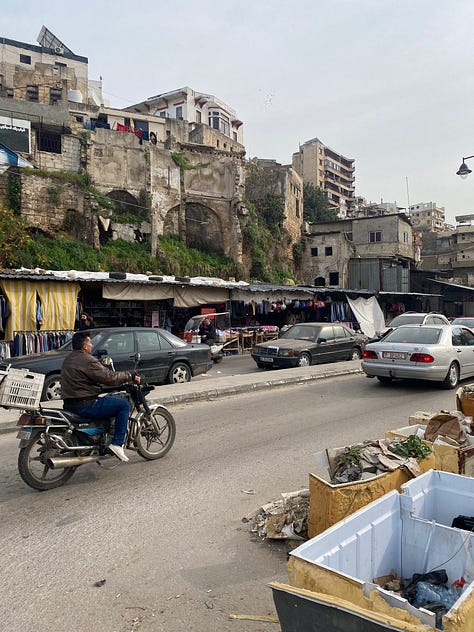
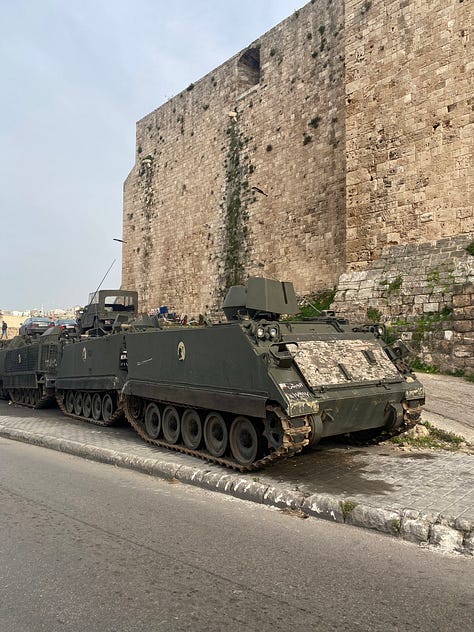
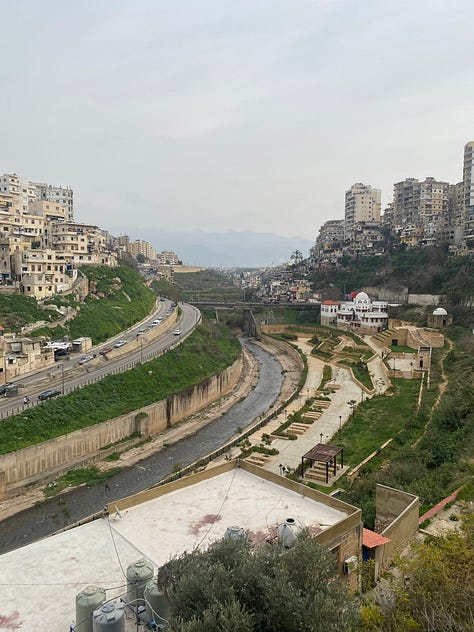
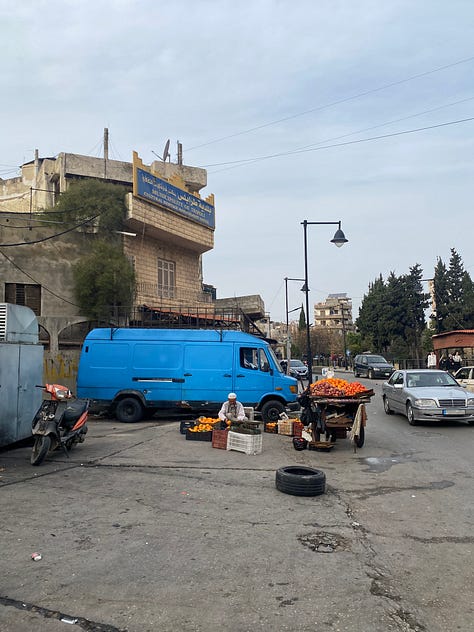
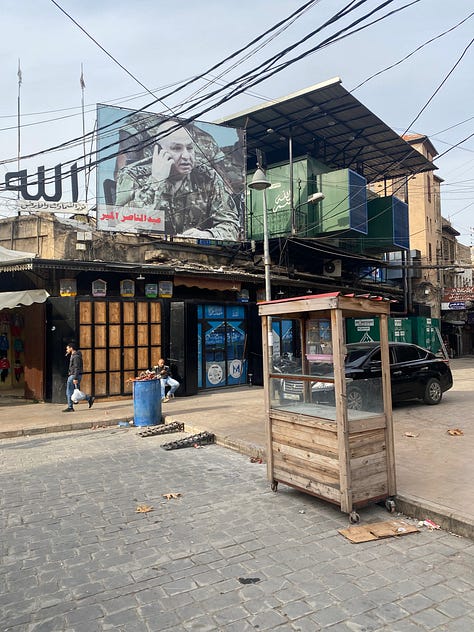
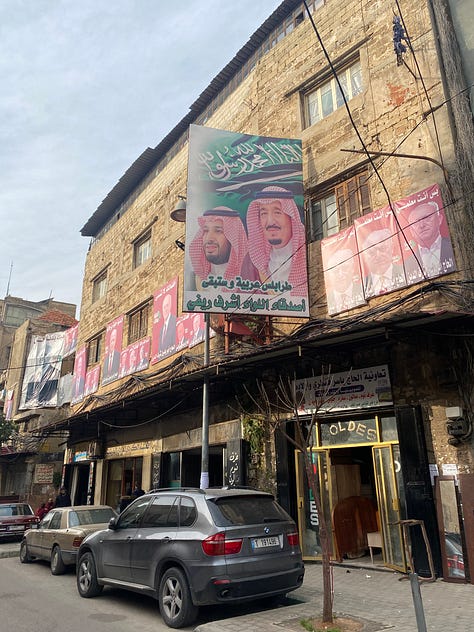
Leaving Beirut behind, I set out to Tripoli in the north of Lebanon to conduct some interviews for my research at Oxford. As the second largest city in Lebanon, Tripoli is a dense city with a majority Sunni population that was once a major trading centre. However, when I visited Tripoli felt like world away from the art galleries, trendy restaurants, and bars of Beirut. While Tripoli has all of those things in smaller doses, it is also struggles with high levels of unemployment, stagnant economic growth, and overcrowding. Tripoli’s current challenges stretch back to the Lebanese civil war, and even to the colonial era. During much of the Lebanese civil war, Tripoli was cast as a rebel city and ‘Fortress of the Sunnah’ by the Tawhid Movement which was prominent in the city. The city’s famous citadel, a frankish castle originally constructed by crusaders in the 12th century, was even used as a centre of the Salafist Tawhid Movement during the conflict, damaging parts of the fortress when Syrian Arab Army invaded in late 1985. The scars of the civil war are still seen and felt in Tripoli and the standard of living remains behind Beirut as social and economic challenges grow worse. Some neighbourhoods in the city and surrounding areas have become home to Salafist movements (both quietest and activist alike) and clashes with Alawites and Shia’s have continued with the Lebanese Army only rarely intervening. During the rise of ISIL in Syria and Iraq, Tripoli saw more young men & women leave to join the caliphate that most places in Lebanon. While the overwhelming vast majority of Lebanon, including Tripoli, continues to view ISIS as an abomination there was a small segment of young men & women who who have few opportunities to find jobs or further education that was attracted to its message even if the reality turned out differently than they expected. However ISIL’s caliphate also created a wave of internally displaced persons (IDPs) and refugees who fled from Syria to Lebanon seeking to avoid bloodshed from ISIS and the Assad regime. Many of these Syrian refugees came to Lebanon, Jordan, and Turkiye.
The Citadel of Tripoli which served as a base for the Tawheed Movement during the Lebanese Civil War
One of the men I met in Tripoli was one of those refugees. Originally from Deir Ez-Zour, one of the most rural and isolated governorates in Syria, he fled from Raqqa after ISIL declared the city as the capital of its so-called Caliphate in 2014. While I will leave out his name, he gave me permission to share his story and told me it was important to remember all of the crimes ISIS committed on the Sunnah, the people it originally claimed to be defending. In his case, ISIS had attacked female members of his family for failing to comply with the public dress standards set by the group and imprisoned him for smoking cigarettes and argelieh (amiyya/levantine arabic for shisha/hookah tobacco) which many traditional religious interpretations view as prohibited. When I asked him how many times ISIS had arrested him for smoking, he told me that after the third time he made up his mind to leave Deir Ez-Zour for good. Lebanon was only other country he had family in, and Tripoli seemed the most hospitable city for him. He initially crossed over the Syria - Lebanon border at Majdal Anjar and went through the Bekkah Valley and Beirut before settling in Tripoli with his wife and two children. When I asked if he would ever consider returning to his home in Syria which he was forced to leave, he told me that he would never go back until ISIS was completely gone from Syria. In his experience, ISIS had destroyed his life, stolen his livelihood, and harassed his family, despite his family being traditional and praying five times a day. For him, ISIS didnt care. ISIS has a distorted view of Islam that excludes the vast majority of Muslims on the planet. The western attacks conducted by ISIS or its supporters in Paris, London, or Ottawa were horrific and we should reflect on the countless attacks that ISIL carried out on the communities which lived around it. We all face this threat, and the brunt of it is faced by Muslims who ISIS falsely claims to protect. We can find unity in coming together to counter this challenge and remember how the group and its ideology have produced deep scars on individuals and families around the world.
As I left Tripoli, I was deeply moved by the personal impact that ISIS and groups have had. These personal stories are what keep me fired up and focussed on understanding these groups. While there is still much we do not know about how these groups evolve, adapt, and operate, we know significantly more than we did two decades ago as scholars and practitioners across the spectrum have focussed on them. As we go forward, the groups and ideas involved will constantly change and shift but we should remember the deeply personal impacts these groups have on the world.
- -
Lefèvre, Raphaël. Jihad in the City: Militant Islam and Contentious Politics in Tripoli. Cambridge University Press, 2021.
https://www.aljazeera.com/news/2023/5/19/lebanon-gets-interpol-notice-for-central-bank-boss-riad-salameh
https://www.theguardian.com/world/2023/aug/10/us-uk-and-canada-impose-sanctions-on-riad-salameh-ex-governor-of-lebanons-central-bank
https://quadrant.org.au/magazine/2015/04/long-war-comes-lebanon/





